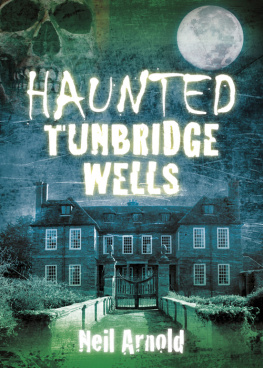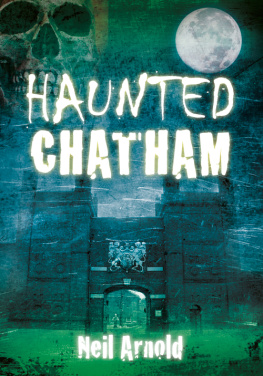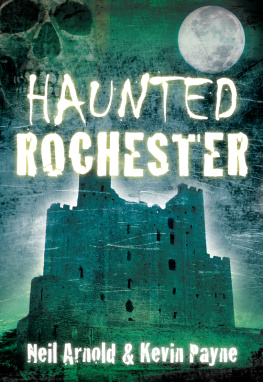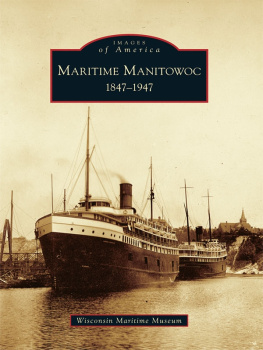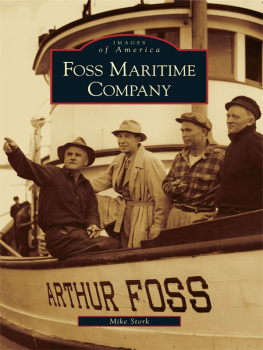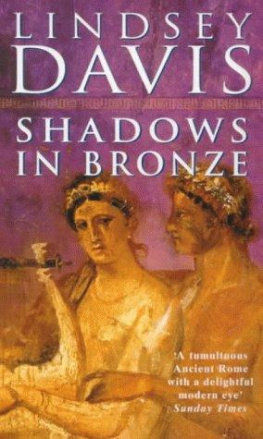Neil Arnold - Shadows on the Sea: The Maritime Mysteries of Britain
Here you can read online Neil Arnold - Shadows on the Sea: The Maritime Mysteries of Britain full text of the book (entire story) in english for free. Download pdf and epub, get meaning, cover and reviews about this ebook. year: 2013, publisher: The History Press, genre: Adventure. Description of the work, (preface) as well as reviews are available. Best literature library LitArk.com created for fans of good reading and offers a wide selection of genres:
Romance novel
Science fiction
Adventure
Detective
Science
History
Home and family
Prose
Art
Politics
Computer
Non-fiction
Religion
Business
Children
Humor
Choose a favorite category and find really read worthwhile books. Enjoy immersion in the world of imagination, feel the emotions of the characters or learn something new for yourself, make an fascinating discovery.

- Book:Shadows on the Sea: The Maritime Mysteries of Britain
- Author:
- Publisher:The History Press
- Genre:
- Year:2013
- Rating:3 / 5
- Favourites:Add to favourites
- Your mark:
- 60
- 1
- 2
- 3
- 4
- 5
Shadows on the Sea: The Maritime Mysteries of Britain: summary, description and annotation
We offer to read an annotation, description, summary or preface (depends on what the author of the book "Shadows on the Sea: The Maritime Mysteries of Britain" wrote himself). If you haven't found the necessary information about the book — write in the comments, we will try to find it.
Shadows on the Sea: The Maritime Mysteries of Britain — read online for free the complete book (whole text) full work
Below is the text of the book, divided by pages. System saving the place of the last page read, allows you to conveniently read the book "Shadows on the Sea: The Maritime Mysteries of Britain" online for free, without having to search again every time where you left off. Put a bookmark, and you can go to the page where you finished reading at any time.
Font size:
Interval:
Bookmark:


This book is dedicated to my heroes John Lennon,
Marc Bolan, Nikki Sixx and H.P. Lovecraft
With many thanks and love to my mum Paulene, dad Ron, nan Win, granddad Ron, my sister Vicki and my wife Jemma. Thanks to The History Press; Jonathan Downes, Richard Freeman and The Centre For Fortean Zoology; Nick Redfern; Joe Chester; Karl Shuker; Medway Archives and Local Studies; WaterUFO; Fortean Times ; Dubuque Daily Herald ; The Morning Herald ; Auckland Star ; Medway Messenger ; Entiat Times ; Ashburton Guardian ; Daily Mirror ; The Observer ; Evening Post ; Bygone Kent ; Wales Online; Northern Echo ; Chatham Standard ; Falmouth Packet ; Western Morning News ; Kent Today ; North Wales Chronicle ; KentOnline; UFOInfo; Bristol Evening Post ; Pembroke County Guardian ; UFO Magazine ; Daily Mail ; Scottish Sunday Mail ; Dorset Echo ; Kentish Express ; Grimsby Telegraph ; The Metro ; Folkestone Herald ; Sunday Express ; and Liverpool Echo . Extra special thanks to Simon Wyatt, Joyce Goodchild, Stuart Paterson, Mark North, Terry Cameron, Dr Chris Clark, Matt Newton and Glen Vaudrey for contributing images.
DIRECTOR OF THE CENTRE FOR FORTEAN ZOOLOGY
They that go down to the sea in ships, that do business in great waters; These see the works of the LORD, and his wonders in the deep.
Psalms, 107:23, KJV
My father was a sailor. During the Second World War he served in the Battle of the Atlantic, and after the war he was with the Blue Funnel Line in Australia and South East Asia. He came ashore in 1947 to marry my mother, but he never stopped being in love with the sea. Until he died in 2006 he would tell me stories of his time on the ocean, and from him I inherited a respect and fascination for life on the dark waters.
It seems from recent evidence that my use of the word inherited might not be incorrect. The website genotopia.scienceblog.com about human genetics wrote in the summer of 2011:
Researchers at Mystic University in Connecticut have identified a gene associated with seafaringness, according to an article to be published tomorrow in the journal Genetic Determinism Today . Patterns of inheritance of the long-sought gene offers hope for sailing widows, and could help explain why the sailing life has tended to run in families and why certain towns and geographical regions tend historically to have disproportionate numbers of sea-going citizens. The gene is a form of the MAOA-L gene, previously associated with high-risk behavior and thrill-seeking.
So, did Odysseus, Sir Francis Drake, Thor Heyerdahl and my father have a genetic predisposition towards a life on the ocean waves? We probably will never know, and to be honest I dont really care. All I know is that, for as long as I can remember, I have been fascinated by stories of the strange things that happen on, over and under the sea, and they have been part of my personal iconography. Take mermaids, for example. When I was small my father used to sing a most unseemly song, which went:
My Father was the keeper of the Eddystone Light
And he slept with a mermaid one fine night.
Many years later I actually met a young lady called Phillipa, known to everyone as Flip. Sadly, she has now left us, having succumbed to breast cancer about fifteen years ago. But both she and her mother told me (in a completely matter-of-fact manner) how she had seen a mermaid sitting on a rock off the Scilly Isles a few years before. When I came out with all the cryptozoological clichs about seals and manatees (not that I had any suspicion that a manatee should be off the coast of western Cornwall), she told me in no uncertain terms not to be so bloody stupid. She was a fishermans granddaughter and knew perfectly well what a seal looked like.
I have been in search of Morgawr, the Cornish sea-giant. I know several people who have seen it, and I am friends with the notorious Tony Doc Shiels, who has himself called up monsters from the vasty deep. I have never seen this Irish wizard call up a sea monster, but I have seen him do something very similar on an Irish lake. But that is another story entirely.
I have known Neil Arnold for over fifteen years. He was a boy, only just out of school when I first knew him, and I have watched him mature into one of Britains foremost writers on Fortean subjects, giving what help and guidance I have been able along the way. I can think of no one better to write about the mysteries of the realm of Poseidon, and I am very proud that he has asked me to write the foreword for this fascinating and excellent book.
Sailors and other seafaring folk are extremely superstitious. Sea captains and trawlermen will happily chatter over a pint about the rough seas theyve conquered, or the mighty fish theyve caught in their nets, but the mention of ghosts and the like will send them running for their beds in terror. This book is a unique foray into sea-related superstition and folklore, and serves up several reasons as to why nautical-minded folk are wary of the waters around Britains coastline. Those old, creaky stories of the one that got away may be laughed at no more, because by delving into this compendium of the uncanny youll see why sailors and their ilk are hesitant to dismiss maritime tales of monsters, mermaids, coastal spooks and spectres, and things that go bump on their boats.
Ever since man has had the ability to trawl and travel the rough seas around Britain, there have been weird stories told about unfathomable depths, remote bays and cliffs, and isolated beaches. Sea fishermen may seem like hardened souls; their faces battered by biting winds, their boats bombarded by grey waves, but in most cases, they would always respect those forces of nature and protect themselves accordingly. Sailors once believed it unlucky to take a woman on board a ship, and nowadays it is said to be of ill luck should a woman step over fishing nets. Others will tell you that, should they see a woman with a squint before setting sail, it would also be considered bad luck. In the book Folklore Myths & Legends of Britain it is written that prejudice against the Church is also found among merchant seamen, and that any heavy storms encountered would be blamed on crews whose party consisted of priests and their ilk. Some words would not be mentioned on board ship by sailors, these include salt, eggs, salmon and knives, as well as animal names such as cat, hare, fox and more so the word pig. In fact, the pig is one animal that fishermen are said to fear the most, maybe due to the fact that they bear the Devils mark on their forefeet or because they can sense the wind. There is a legend that some fishermen dread the sight of a cormorant and often associate the bird with maritime misfortune. To spot such a bird at sea would mean imminent tragedy.
Some fishermen avoid setting sail on a certain day, whilst others carry out protective rituals before going to sea. Some boat owners refuse to purchase or have a boat built on a Friday, and in some cases to protect a boat against tragedy the shipwright will tie a red ribbon around the first nail he banged in. Other shipwrights may, for luck, embed pieces of silver or gold within the framework of the boats. When a large ship is christened you will often see someone smash a bottle of champagne against its bows, whilst Scottish fishermen were once said to sprinkle barley around a new vessel. Some fishermen would have their nets blessed before a trawl, which seems to contradict the belief that some seafaring folk opposed the Church. However, in some cases a blessing from a clergyman could actually be blamed if there was bad weather or a day of poor fishing. The weather, quite obviously, plays a great part in the traditions and superstitions of sailors, hence the fact that it is considered to be unlucky to whistle at sea. Those foolish enough to do so will trigger a storm.
Font size:
Interval:
Bookmark:
Similar books «Shadows on the Sea: The Maritime Mysteries of Britain»
Look at similar books to Shadows on the Sea: The Maritime Mysteries of Britain. We have selected literature similar in name and meaning in the hope of providing readers with more options to find new, interesting, not yet read works.
Discussion, reviews of the book Shadows on the Sea: The Maritime Mysteries of Britain and just readers' own opinions. Leave your comments, write what you think about the work, its meaning or the main characters. Specify what exactly you liked and what you didn't like, and why you think so.

